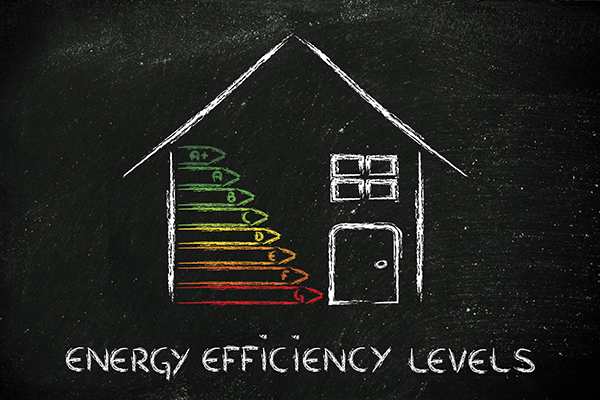Reducing our usage of natural gas has never been more important. The unprovoked Russian invasion of Ukraine has resulted in a plethora of sanctions from western nations, which have caused Russian president Vladimir Putin to threaten to turn off the gas pipeline, leaving western Europe in a deeper energy crisis than we were already in. Couple this with climate change and it’s not surprising that the Dutch government has pledged to be Russian-gas independent before the end of the year.
To reduce Europe’s current dependency on Russian-supplied natural gas, there are many things that each of us can do every day in our lives to do our part.
Get a smart meter
Some homes are already equipped, but if yours does not already have a smart meter, request one from your energy supplier. Smart meters allow you to see your daily energy usage, with most meters showing both usage and costs down to the hour. Since most Dutch customers pay a fixed amount to their energy companies, with a settlement for the actual usage only once a year, smart meters are invaluable to keep track of your spending on energy.
Find electric alternatives
Conversely to the US, electricity in the Netherlands is much, much cheaper than gas. So, where you can, use electrical appliances as much as possible. If you have a gas stove, invest in a portable electric stove top. It cost me about €1.15 to cook rice using gas; it was only about €0.08 using electricity. Wow!
Even with an electric stove top, there are other electric appliances that cook much faster and use less energy. For example, instead of boiling water on a stove top (gas or electric) consider using an electric kettle. Other appliances that use less energy than the stove and oven include: rice cookers, pizza ovens, air-fryers (this one is also great for healthier eating) and my personal favorite, contact grills. Just be conscious of buying too many appliances since they are not the easiest to dispose of, so only buy ones that you will actually use.
Heating our homes
Fortunately, summer is just around the corner and now that it’s spring, the temperature is getting warmer. Still there are cool days and nights. For those times, throw on another blanket or sweatshirt. And in general, consider wearing layers. I actually wear many layers at home and even have a warm, bulky sweater that’s a size too big, that I can just throw on. Also consider getting some thermal long johns or thermal fleece-lined leggings. So cozy!
Take the time now to make sure your home is insulated as best as possible for the upcoming winter. Get draft stoppers for all doors and be sure that the weather stripping on exterior windows and doors is efficiently blocking outside air from getting in. There will be times where you will need to turn on the heat; for those times keep the thermostat to 19 Celsius (65 Fahrenheit) or less and keep the gas turned off at the radiator level and doors shut in empty rooms. Program the thermostat to turn off the heat 1-2 hours after everyone goes to bed and to turn on just before people get up in the morning.
Heating water
For heating water, some water heaters have a setting that only heats up water when it’s needed. It takes a bit more time for the hot water to actually come out of the faucet, but it keeps the water heater from constantly burning gas to heat water that isn’t being used, including at night. Also, keep your water heater at a lower temperature. You can do this gradually so it’s less of a cold surprise!
Be sure to keep showers to 5 minutes or less and take as cold a shower as you can. I’ve even heard of people taking completely cold showers! I’m not there yet, but gone are the days of long, hot showers or baths. Only use cold water in the sink when washing up in the morning and never just let the hot water run. Even in the kitchen, consider using cold water to hand wash dishes.
The most important thing is to be aware of your gas usage and consider alternatives. Every little bit will help while we adjust our daily lives to more sustainable energy sources.
Written by Marla Thomson
